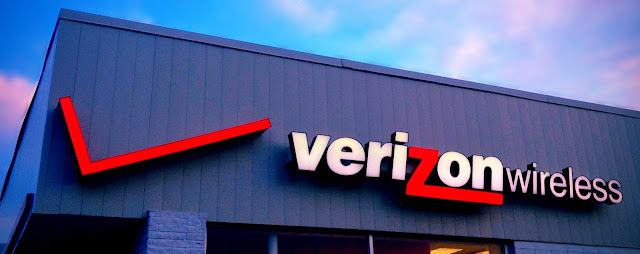A Jefferson County man was living in a "nightmare" after a scammer posing as Chase Bank's Fraud Department sent a "Chase Fraud Alert" to his phone. After giving the scammer access to his account, 11 wire transfers initiated by the scammer stole almost $140K out of his Chase Business account.
 |
Chase Bank branch
|
What happens when the bank isn't prepared to help you resolve a fraud alert quickly, and a scammer posing as the fraud department is "more than eager" to help?
It's a situation happening far too often after a man in Colorado learned the hard way to be more cautious after losing almost $140K in a fraud scheme that all started with a text message.
An FBI report on fraud in 2022 found that 405 Colorado residents lost almost $500k to phishing scams, while 467 residents lost over $2 million to spoofing scams in the state.
More details are below.
Colorado Man Tricked by Scammer's Text Message Spoofing a 'Chase Fraud Alert'
FOX31 News reported on Friday that Scott Koll from Golden, Colorado received a Chase Fraud Alert text to his phone in January, which started a nightmare situation for him and his wife.
Scott is seen in the photo below along with the Chase Alert he received.
 |
| Scott Zoll and Fraud text alert; credit: FOX31 News |
The Chase fraud alert read: “Chase Alerts: Did you attempt to send a Wire transfer for the amount of $4,500.00? Reply Y or N. STOP to end."
Scott contacted his business partners to see if they knew anything about it.
He said:
“At that point, before I did anything else, I reached out to my business partners and asked if they had initiated a wire. They had not. So I then called the bank branch to see if they could see any activity on my account." -Scott Koll, Chase customer
Next, Scott called his local bank branch in Golden, which gave him the number for Chase's fraud department.
While communicating with his bank, he also replied to the "fraud alert" text.
He said:
“At that point, I acknowledged the text that came through, said, ‘No, we did not initiate this wire,’ [&] got a text back immediately saying somebody from the Chase fraud team will be in contact with you.” -Scott Koll, Chase customer
Scott didn't know that his text replied to a scammer waiting for his response.
Chase's legitimate fraud department number was being "spoofed" by the scammer, which also fooled Scott into thinking it was his real bank.
He said:
"Probably within 30 seconds, I received a phone call from the exact number that the branch had just given me." -Scott Koll, Chase customer
He was on the phone with a scammer and the call dropped. So he called the real Chase Bank fraud number. His real bank could not see the texts or communications that he had with the scammer, and Scott began to get frustrated with his real bank.
That's when the scammers posing as his bank called back. Since they seemed to know what they were doing, he continued on his call with them. They knew how much money was in his account and could tell him his bank account number.
The Scammer Asked Him for a 'One-Time Passcode'
Scott was working with who he thought was a member of the fraud team to look into a fraudulent wire that was posted to his account.
The scammer told him they would need Scott to reveal a one-time passcode that would be texted to his cell phone to authenticate his identity. Scott complied with this request, which then gave him the access needed to initiate 11 outgoing wire transfers out of his business account totaling $137,130.
Never give anyone a PIN or "one-time passcode" from your bank. Real employees of the bank do not ask for this and would get in trouble if they did ask for it. Only scammers ask for this type of information.
Chase Bank released a statement to FOX31 News.
It read:
"These types of scams are heartbreaking. Beware of new contacts asking you for codes, access to your device, or to send them, yourself, or anyone else money to prevent fraud. Chase, other banks, law enforcement, and technology companies won’t ask you to do this, but scammers will. Like cash, wires are final payments and are rarely successfully recalled, once sent." -Chase Bank
An Update to the Scott Koll Case
The U.S. Sun reported that Scott Koll was notified by Chase Bank on 31 January 2024 that a "significant amount" of their missing funds are expected to be returned after investigating his case over several weeks in January.
Their investigation also uncovered that Scott Koll's computer was infected with malware and "was hacked more than one year before the fraud took place."
Thoughts
Now it is time for the reader to share your thoughts on this story.
- Do you know anyone who has been the victim of bank fraud?
- Have you ever had fraudulent charges posted to your debit or credit card?
- Have you had to contact a fraud department to dispute fraud charges?
Please share this article with friends and family so they can be informed about this story.
Sources
Chase Bank's website.
FBI Report: "Federal Bureau of Investigation Internet Crime Report 2022." Internet Crime Complaint Center (IC3). Date accessed: 2 February 2024.
Low, Rob. "Phishing scam dupes Jefferson County couple out of $137K." FOX31 News. 1 February 2024.
White, Debbie. "DON'T BANK ON IT. ‘Never trust an incoming call,’ Chase customers are warned after couple loses $137k – it looked like an official number." The U.S. Sun. 2 February 2024.







